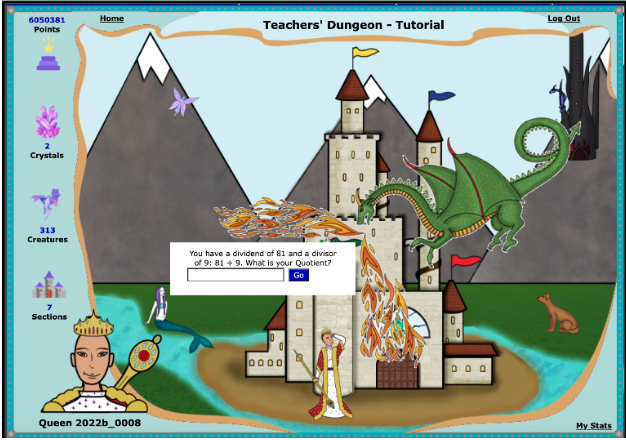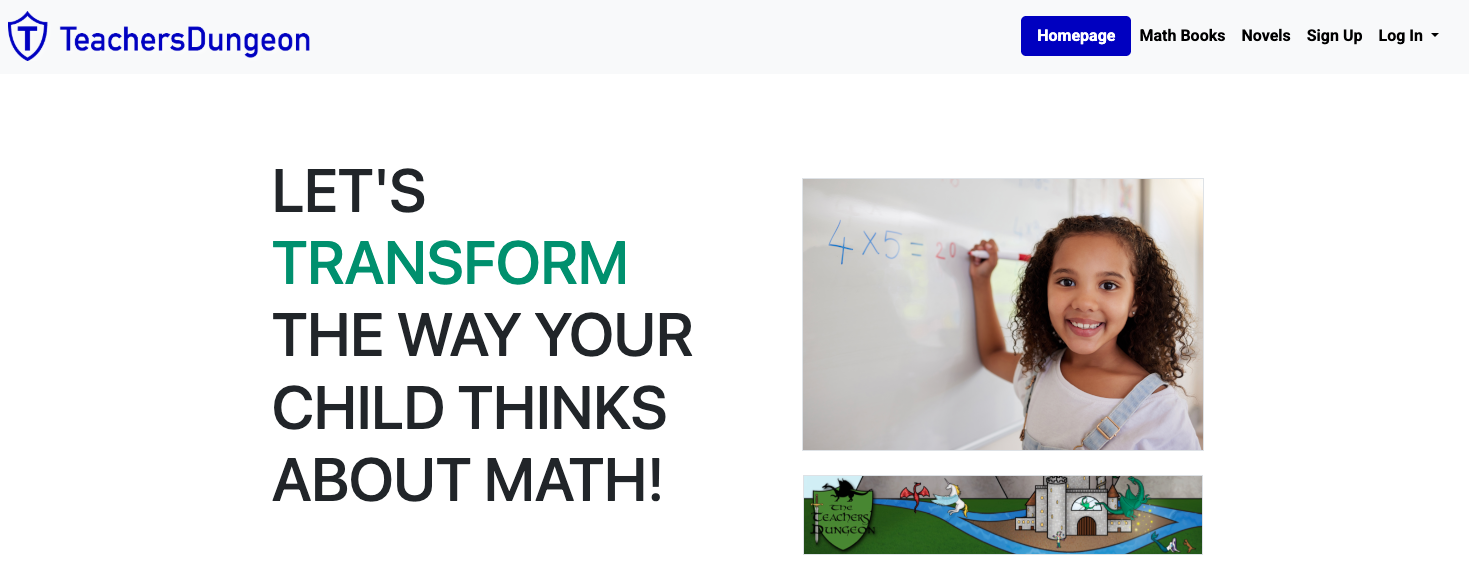The Problem: “My Kid Just Doesn’t Like Math!”
You’ve heard it before. Maybe even from your own child:
“I’m just not good at math.”
“Math is boring.”
“I’ll never use this in real life.”
These phrases are like alarm bells for parents and teachers alike. The root issue? Math anxiety—a psychological barrier that can lead to avoidance, frustration, and a fixed mindset.
In today’s STEM-driven world, math is more important than ever. Yet millions of students are mentally checking out because they don’t feel capable or connected. ❌
Top 10 Reasons Elementary Kids Don’t Like Math
1. ❌ It Feels Too Hard
Kids often see math as “all or nothing.” If they don’t understand something right away, they assume they’re “just bad at math.” This fixed mindset shuts down motivation and builds anxiety.
Tip: Encourage a growth mindset — remind them that math is a skill, not a talent.
2. They’ve Had a Bad Experience
Even one embarrassing moment — like being called out for a wrong answer. This can make a child dread math time. Math trauma is real.
Tip: Build a safe, supportive space where it’s okay to make mistakes.
3. ⏳ It Moves Too Fast
Curriculum pacing can leave kids behind before they’ve fully grasped foundational concepts. Once they fall behind, everything starts to pile up.
Tip: Use intervention tools (like The Teacher’s Dungeon) to revisit and master key skills.
4. They Don’t See the Purpose
“Why do I need to learn this?” is a common complaint — especially with abstract topics like fractions or long division.
Tip: Show how math connects to real life: money, sports stats, cooking, game design, and more.
5. It’s Too Memorization-Based
Kids are often taught to memorize steps without understanding why they work. This makes math feel robotic — and easy to forget.
Tip: Focus on conceptual understanding through models, number talks, and interactive games.
6. Working Memory Overload
Some math problems ask kids to juggle multiple steps in their head. For kids with ADHD or processing challenges, that’s overwhelming.
Tip: Break problems down into steps and use visual supports like number lines and diagrams.
7. ♂️♀️ Peer Pressure or Embarrassment
If classmates seem to “get it” faster, a child may feel ashamed or slow — especially if they’re called on and freeze.
Tip: Normalize different learning speeds and celebrate effort, not speed.
8. ️ It’s Not Engaging
Let’s face it — traditional worksheets and drills can’t compete with video games, YouTube, and apps.
Tip: Make math fun and interactive! Try gamified learning like The Teacher’s Dungeon, which combines math mastery with adventure-based gameplay.
9. Fear of Being Wrong
Many kids are afraid to try because they don’t want to be wrong. Fear of failure leads to avoidance and learned helplessness.
Tip: Praise thinking, risk-taking, and effort — not just right answers.
10. Math Anxiety Passed Down from Adults
Kids pick up on how adults feel about math. If a parent or teacher says “I’m not a math person,” kids adopt that belief, too.
Tip: Model a positive attitude toward math — even when it’s hard. Your mindset matters!
But here’s the truth:
Every child can learn and love math—if it’s taught the right way.
Top 10 Reasons Why It’s Important for Elementary Kids to Learn Math
1. Builds Critical Thinking & Problem Solving Skills
Math teaches kids how to break problems into smaller parts, look for patterns, and think logically — essential life skills that go far beyond the classroom.
Tip: Critical thinking, problem-solving in kids, why math is important
2. Prepares Them for Future Careers
Whether they become engineers, doctors, artists, or entrepreneurs, math is part of almost every profession. Early exposure gives them a foundation for STEM opportunities later in life.
Tip: Future careers execrate with a strong understanding in math.
3. Boosts Brain Development
Research shows that early math achievement is a stronger predictor of academic success than reading skills. Math lights up regions of the brain tied to memory, attention, and reasoning.
Tip: Math helps brain development, especially for children learning early math skills.
4. Teaches Perseverance
Math often takes trial and error. Learning that it’s okay to make mistakes — and try again — helps kids develop grit and resilience.
Tip: Math teaches perseverance. Teaching grit through math is a cool way to become resilient!
5. Helps with Real-World Life Skills
Telling time, managing money, measuring ingredients, understanding distance — math shows up every day. Kids with strong math skills feel more confident and capable in life.
Tip: Real-life math builds life skills. Math is in everyday life for kids
6. Supports Other School Subjects
Math strengthens skills used in science, reading (patterns, sequencing), and even art (geometry, symmetry). It’s foundational to cross-curricular success.
Tip: Math is a cross-curricular learning subject. Math supports almost all other other subjects!
7. Encourages Clear Communication
Explaining how they solved a problem helps children learn to articulate their thinking — a key skill in writing, teamwork, and public speaking.
Tip: math builds communication skills in elementary aged children. When they explain their math thinking, they learn to talk for kids
8. Reduces Math Anxiety Later
When kids gain math confidence early, they’re less likely to experience math anxiety in middle and high school. Early success builds long-term confidence.
Tip: Prevent math anxiety by building math confidence with early math success!
9. Fuels Independent Learning
Kids who master basic math facts can tackle complex problems on their own, without frustration. This builds independence, confidence, and curiosity.
Tip: Learning math independence develops self-confidence later in life.
10. Empowers Smart Decision-Making
From comparing prices to analyzing data, math helps kids make informed choices as they grow. It’s about being thoughtful and aware in a numbers-driven world.
Tip: Math helps develop decision making, which help as they enter middle school, high school, College, and adulthood.
✨ Bonus Tip: Make Math Fun and Empowering!
If your child struggles with math, it doesn’t mean they’re bad at it — it may just mean they haven’t been taught in a way that works for them. That’s where The Teacher’s Dungeon comes in:

An online math intervention game designed for 3rd–6th graders, combining Common Core-based questions, video tutorials, and a real-time progress tracker to make learning both effective and fun.
Learn More:
The Best Online Math Help on Earth for 3rd–6th Graders
Helping Your Child with Math Homework — Without Doing It for Them
When a Lightbulb Goes Off
Let’s talk about Liam, a 5th grader who used to cry over homework. His mom tried everything—flashcards, tutors, even bribes. Nothing worked.
Then something shifted. Instead of forcing rote memorization, Liam’s teacher introduced math through games, storytelling, and real-world problem-solving. For the first time, math made sense—and more importantly, it was fun.
Fast-forward six months: Liam is now in advanced math and actually looks forward to solving equations. Why? Because he believes he can.
That transformation is possible for every child. Here’s how to make it happen.
New Video: Praise, Support & Strong Foundations
Don’t miss my latest video where I dive deeper into effective strategies for building math confidence!
In this video, we discuss how to give your child plenty of praise using the powerful sandwich strategy: start with a compliment, offer one clear suggestion for improvement, and close with another compliment—just like the bread and meat of a sandwich . You’ll also hear about the importance of providing immediate support when your child is stuck, and why building strong basic math skills is the foundation for long-term success.
These ideas, when practiced consistently, can transform your child’s relationship with math from frustrating to fulfilling.
✅ The Solution:
5 Proven Strategies to Spark Math Motivation
1️⃣ Connect Math to Their World
Kids ask, “When will I use this?” Give them answers:
- Measuring ingredients in a recipe
- Planning a road trip budget
- Scoring in video games
- Building LEGO sets with ratios and symmetry
Key SEO Keywords: Real-world math, applying math at home, math in daily life
Pro Tip: Make math relatable by linking it to their hobbies.
2️⃣ Use Game Based Education Learning Platforms
Platforms like The Teacher’s Dungeon turn math practice into an adventure, not a chore. With every correct answer, students level up—unlocking a dopamine hit that makes them want to keep going.
Key SEO Keywords: gamified learning, educational games, math motivation apps
Why It Works: Games trigger intrinsic motivation by providing immediate feedback, progress tracking, and a sense of mastery.
3️⃣ Foster a Growth Mindset
Ditch the idea of being “good” or “bad” at math. Instead, praise effort, strategies, and resilience.
Replace:
- ❌ “You’re so smart!”
- ✅ With: “I’m proud of how hard you worked on that problem.”
Key SEO Keywords: growth mindset math, building confidence in kids, overcoming math fear
Research Insight: According to Stanford’s Dr. Carol Dweck, students who believe their brain can grow perform better academically across the board.
4️⃣ Break It Down with Micro-Lessons ⏱️
Short, digestible math lessons are more effective than long, drawn-out lectures. Keep it to 10–15 minutes and layer concepts over time.
Use video tutorials, apps, or even YouTube explainer clips to reinforce topics visually.
Key SEO Keywords: bite-size math lessons, short math tutorials, video math help for kids
Helpful Tool: Try a video-based learning program like The Teacher’s Dungeon, which offers instant help with each question.
5️⃣ Celebrate Progress, Not Perfection
Turn mistakes into teaching moments. Keep a visible progress board or digital dashboard to track small wins: mastering multiplication, completing a quiz, or just showing effort.
Key SEO Keywords: positive math reinforcement, reward systems for learning, motivation charts
Pro Tip: Create a reward system based on effort, not just correctness.
Real-World Case Study: The Math Turnaround in Novato, CA
In Novato Unified School District, a 6th-grade class piloted a blended learning approach using The Teacher’s Dungeon. Over 12 weeks:
- 85% of students reported feeling more confident in math.
- Average quiz scores rose by 23%.
- Students spent more time on math voluntarily—even at home!
Teachers credited the program’s immediate feedback, Game Based challenges, and embedded video tutorials for the boost.
Result: What started as a trial became a math intervention model.
Final Thoughts:
You Have the Power to Inspire a Math Mindset
Math motivation doesn’t happen by accident. It’s built through connection, consistency, and creativity.
Whether it’s through games, real-life applications, or mindset coaching—you can help your child see math not as a monster, but as a meaningful part of life.
Start small. Celebrate growth. And above all, believe in their potential.
Ready to Make Math Fun?
Try a FREE trial of The Teacher’s Dungeon and discover how math can become an adventure your child actually loves. No more tears—just triumphs.

#MathMotivation #GrowthMindset #GamifiedLearning #ParentingTips #RealWorldMath #TheTeachersDungeon
